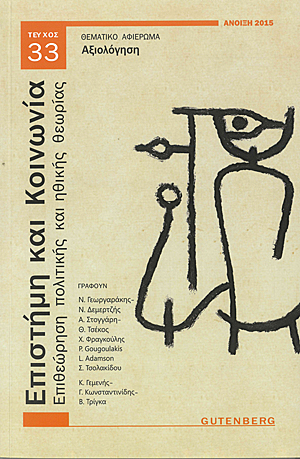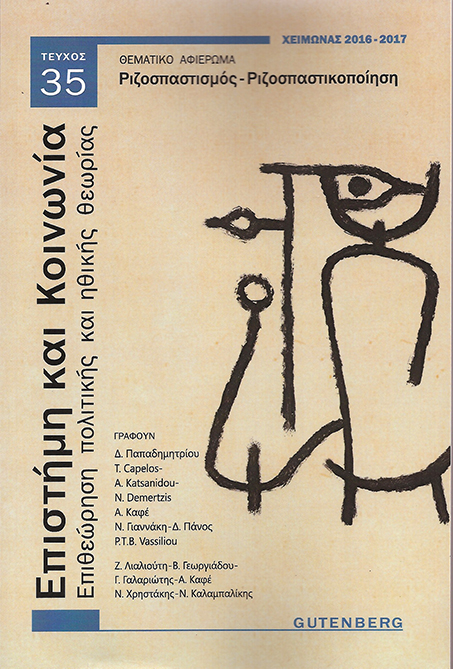Clobalization, community and public space
Abstract
In this article we treat globalization as the historical context in which multiculturalism and intercultural communication emerged. We discuss the contrast between political liberalism and communitarianism and argue that in most contemporary societies the issue of identity is posed in terms of community.
However, one can not assume a single meaning of ‘community’. Rather, its content varies in different theoretical paradigms and historical contexts. We propose that the meaning of ‘community’ can be traced in cultural analysis, as well as modem social and political theory. Additionaly, we maintain that adopting a non communitarian understanding of ‘community’ may promote the convergence between liberalism and communitarianism.
Nevertheless, it is difficult to meet this very condition: the communitarian mentality feeds from the romantic understanding of the relationship between the private and the public sphere, evident in the 19th century. This relationship, institutionalized in the context of what Richard Sennett calls ‘intimate society’, is burdened by a nostalgic return to unmediated forms of social symbiosis.
Article Details
- How to Cite
-
Δεμερτζής Ν. (2015). Clobalization, community and public space. Science and Society: Journal of Political and Moral Theory, 4, 53–78. https://doi.org/10.12681/sas.738
- Section
- Articles

This work is licensed under a Creative Commons Attribution-NonCommercial-ShareAlike 4.0 International License.
Authors who publish with this journal agree to the following terms:- Authors retain copyright and grant the journal right of first publication with the work simultaneously licensed under a Creative Commons Attribution-NonCommercial-ShareAlike License that allows others to share the work, not for commercial purposes, with an acknowledgement of the work's authorship and initial publication in this journal. If you remix, transform, or build upon the material, you must distribute your contributions under the same license as the original.
- Authors are able to enter into separate, additional contractual arrangements for the non-exclusive distribution of the journal's published version of the work (e.g., post it to an institutional repository or publish it in a book), with an acknowledgement of its initial publication in this journal.
- Authors are permitted and encouraged to post their work online (e.g., in institutional repositories or on their website) prior to and during the submission process, as it can lead to productive exchanges, as well as earlier and greater citation of published work (See The Effect of Open Access).









